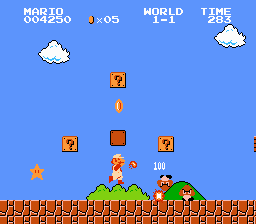There's good news and bad news for crotchety old-school gamers like me. The bad news (I always start with the bad news) is that
Skyrim
, the next installment in the Elder Scrolls series, will include that detestable design element known as level-scaling. The good news,
recently relayed by a Bethesda community rep, is that the level scaling will be "similar to Fallout 3's, not Oblivion's."
I don't actually know what that means, because I've never played Fallout 3. However, Oblivion's level-scaling is about as bad as it gets, so I welcome
any change to the system.
But wait, perhaps not everyone knows what I mean when I say "level-scaling." In a few words, it means that your enemies level up with you. Game developers use it to make sure combat remains challenging no matter where the PC goes. This is particularly desirable in sandbox RPGs like Oblivion, where the PC can choose to wander anywhere at any time.
In older games like
Baldur's Gate
, if you wandered into an area too dangerous for your level, you often found yourself facing a reload screen before you knew what hit you (Enter
really old-school gamer: "Reload screens! We didn't have any of your dag-blame reload screens! We had to save our progress to floppy disk! *cough* *wheeze*"). At some point, somebody decided this was a problem, so developers came up with the most straightforward (read: lazy) solution: spawn enemies that are always appropriate for the player's level.
Oblivion demonstrated everything that can go wrong with level-scaling. Bandits decked out in Daedric armor roamed the countryside. Mountain lions capable of ripping a demigod to pieces lurked in the wilderness. Yes, it was a
tad unrealistic. But perhaps more importantly, because of the way the leveling system worked, it was possible to actually get
weaker (relative to the rest of the world) as you leveled up.
I'll continue to shake my fist at level-scaling as long as I draw breath. I much prefer a game in which I have the freedom to get in over my head, get my arse handed to me on a platter, then go back later to take revenge the monsters that once owned me. But (dagnabbit) level-scaling is pretty much a given in games today, so perhaps the best we can hope for is that developers become more sophisticated in how they implement it. Here are a few suggestions:




